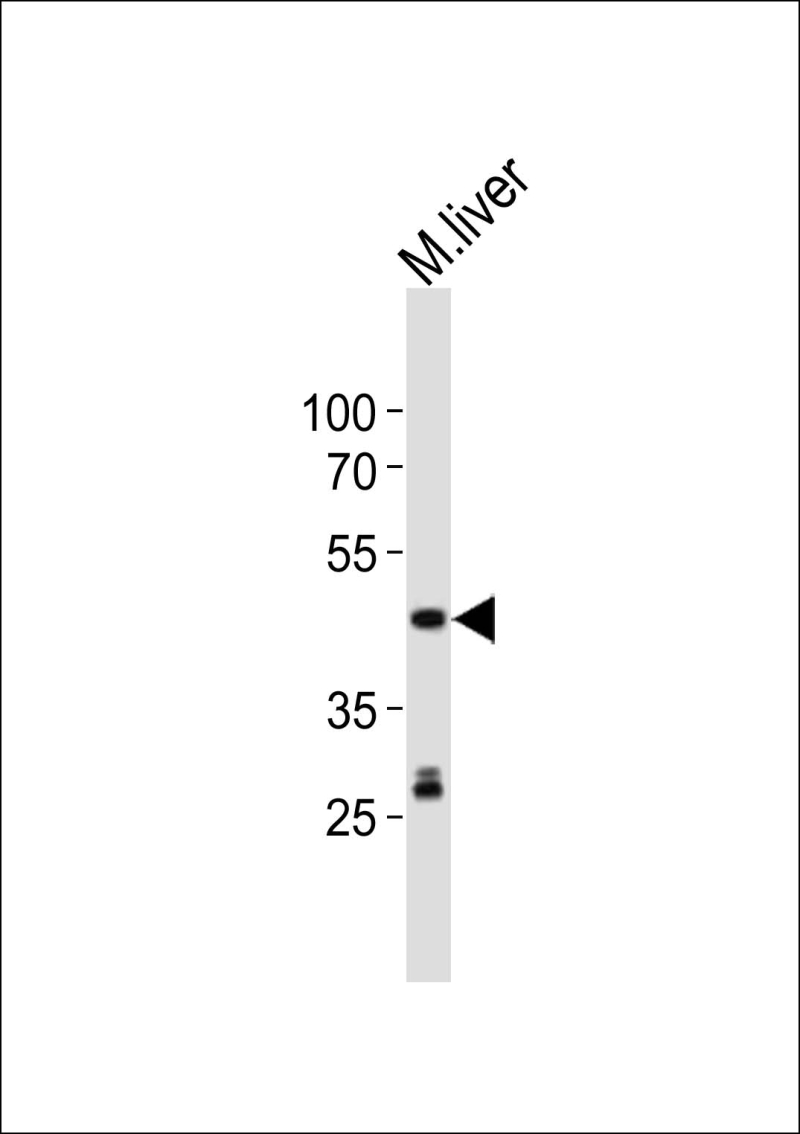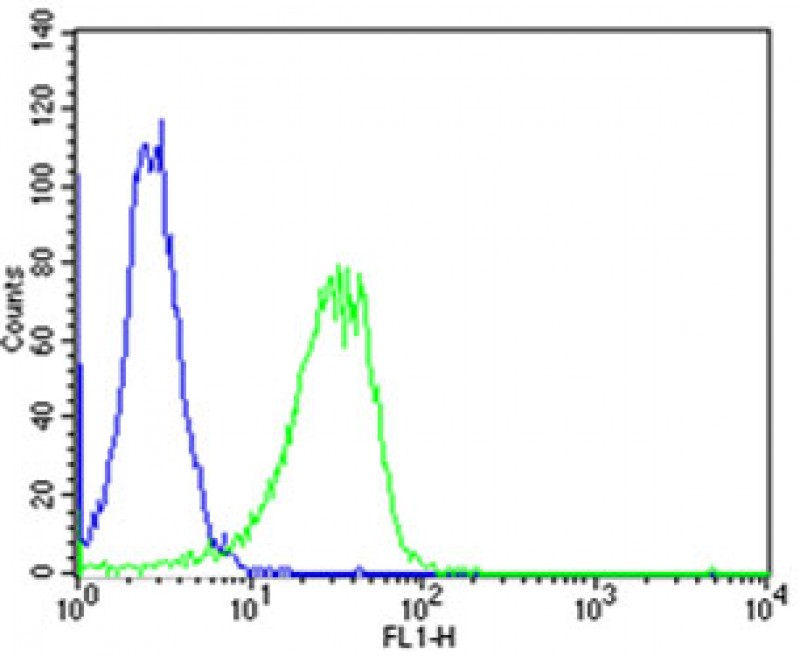

| WB | 1/1000 | Human,Mouse,Rat |
| IF | 咨询技术 | Human,Mouse,Rat |
| IHC | 咨询技术 | Human,Mouse,Rat |
| ICC | 技术咨询 | Human,Mouse,Rat |
| FCM | 1/25 | Human,Mouse,Rat |
| Elisa | 咨询技术 | Human,Mouse,Rat |
| Aliases | Sonic hedgehog protein, SHH, HHG-1, Sonic hedgehog protein N-product, Sonic hedgehog protein 19 kDa product, Sonic hedgehog protein C-product, Sonic hedgehog protein 27 kDa product, Shh, Hhg1 |
| Entrez GeneID | 20423 |
| WB Predicted band size | 47.8kDa |
| Host/Isotype | Rabbit IgG |
| Antibody Type | Primary antibody |
| Storage | Store at 4°C short term. Aliquot and store at -20°C long term. Avoid freeze/thaw cycles. |
| Species Reactivity | Human, Mouse, Rat |
| Immunogen | This Mouse Shh antibody is generated from a rabbit immunized with a KLH conjugated synthetic peptide between 397-431 amino acids from the C-terminal region of mouse Shh. |
+ +
以下是关于小鼠Shh抗体的3篇参考文献的简要信息,涵盖抗体应用及功能研究:
---
1. **文献名称**:*Cyclopia and defective axial patterning in mice lacking Sonic hedgehog gene function*
**作者**:Chiang, C., et al.
**摘要**:该研究通过基因敲除揭示Shh在小鼠胚胎前后轴形成中的作用。文中使用Shh抗体进行全胚胎免疫染色,证实Shh蛋白在脊索及底板中的表达缺失,导致中枢神经系统及四肢发育异常。
---
2. **文献名称**:*Sonic Hedgehog: Restricted expression and limb dysregulation in mouse embryonic mutants*
**作者**:Roelink, H., et al.
**摘要**:作者通过Shh抗体进行原位杂交及Western Blot分析,验证Shh在肢芽发育中的梯度分布,并证明其异常表达导致小鼠肢体极性缺陷,为Shh信号在形态发生中的浓度依赖性提供证据。
---
3. **文献名称**:*Sonic hedgehog signaling in spinal cord gliomas*
**作者**:Dahmane, N., et al.
**摘要**:研究利用Shh抗体检测小鼠脊髓胶质瘤模型中Shh蛋白的异常激活,发现Shh通路失调通过Patched受体促进肿瘤发生,为癌症研究与靶向治疗提供依据。
---
**备注**:以上文献均为经典研究,建议通过PubMed或Google Scholar检索原文获取抗体具体货号及实验细节。若需技术型文献(抗体制备/验证),可补充说明进一步筛选。
The mouse Sonic Hedgehog (Shh) antibody is a crucial tool in developmental biology and biomedical research, targeting the Shh signaling protein essential for embryonic patterning and tissue homeostasis. Shh, a secreted glycoprotein, acts as a morphogen during embryogenesis, regulating cell differentiation, proliferation, and survival in processes like neural tube formation, limb development, and organogenesis. In adults, Shh maintains stem cell populations and contributes to tissue repair. Dysregulation of Shh signaling is linked to congenital disorders, cancers (e.g., medulloblastoma, basal cell carcinoma), and neurodegenerative diseases.
Mouse-specific Shh antibodies are widely used to study Shh expression and function in murine models, enabling techniques such as immunohistochemistry, Western blotting, and immunofluorescence. These antibodies typically recognize specific epitopes within the Shh protein, allowing researchers to localize Shh in tissues, track its secretion, or analyze signaling pathway activation. Monoclonal antibodies offer high specificity, while polyclonal versions may detect broader epitopes.
Validation of Shh antibodies often involves knockout mouse controls to confirm target specificity. Their applications extend to investigating developmental defects, cancer mechanisms, and therapeutic interventions targeting the Shh pathway. As Shh inhibitors enter clinical trials, these antibodies also support translational research and diagnostic assays.
×